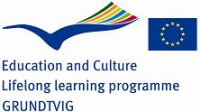General Overview
Summary of THE project
This Grundtvig Learning Partnership projects aims at:
-
Showing educational values of sports in the society: helping people throught sports practices to become active citizens. Sport is a mirror of the society: it reveals the reality of tolerance, of sharing, of solidarity, of common welfare, of understanding the other.
-
Sharing good practices in sports in differents countries and social groups.
-
Insisting on participation: changing the unique gold medal for a gift for eveyone.
-
Making popular physical activities whithout any risk for your health
MOTIVATION
- To implement a project composed of 5 phases – study visits mainly based on a practical approach. The principle inspiring the project will be “learning by examples”. Each of them will be characterized by a specific topic having to do with social and educational aspects of sport and will be carried out in particular different contexts (learning by differences).
-
To contribute to promote Sport for All putting in common different strategies.
-
To propose a common reflection on “Sport and Inclusion and Participation”.
-
To give both to sports educators and social workers concrete tools and to give them examples on how sport can be used as an instrument of inclusion of people (not only youngsters) having fewer opportunities, with some difficulties or disadvantaged, including all categories mentioned on the Youth in Action program.
-
To disseminate its results thanks to the multiplying role that all participants/learners will play in their respective contexts.
-
To compare methods and innovative approaches on public and private policies and also on the relationship between sport and formal and non formal education. Those reflections are the central questions on what sport is.
- increase skills and competences;
- acquire new tools, compare new methods and approaches and use/adopt them in the daily work;
- stimulate the motivation and the commitment of participants and, indirectly, of other stakeholders;
- stimulate the willing to innovate and improve the quality of the daily work.
- improve the dialogue between Local Authorities, Policy Makers, Head of Projects, Officers, Organizations/associations and representatives of Civil Society;
- improve the co-operation and mutual understanding between people working in the social-educational and the sport fields;
- improve the quality of the activities provided by the sport associations/clubs;
- spread the principles of the White Paper on Sport;
- provide new and better opportunities overall to people with fewer opportunities or having some difficulties;
- involve/reach more people in our activities (it is well don’t forget that our aim is “Sport for All”).
ROLES OF EACH PARTNERS
=> FRANCE AMERIQUE LATINE (FR), project coordinator: management of the project, centralization of information, in charge of keeping the cooperation between the partners. FAL will also be in charge of the coordination of the Mid-term and Final evaluations.
=> REGIONAL YOUTH CENTRE of KOSICE (Slovakia), Questionnaire for adults about “Ethical principles inspiring local Sport politics”.
=> ASSOCIAZIONE CULTURALE ENZIMISTUDIO (Italy): Edition of a 12-page-brochure on “Sport Education and Citizenship”. Turin will be also in charge of the Final Evaluation. All the documents will be also put in a CD .


